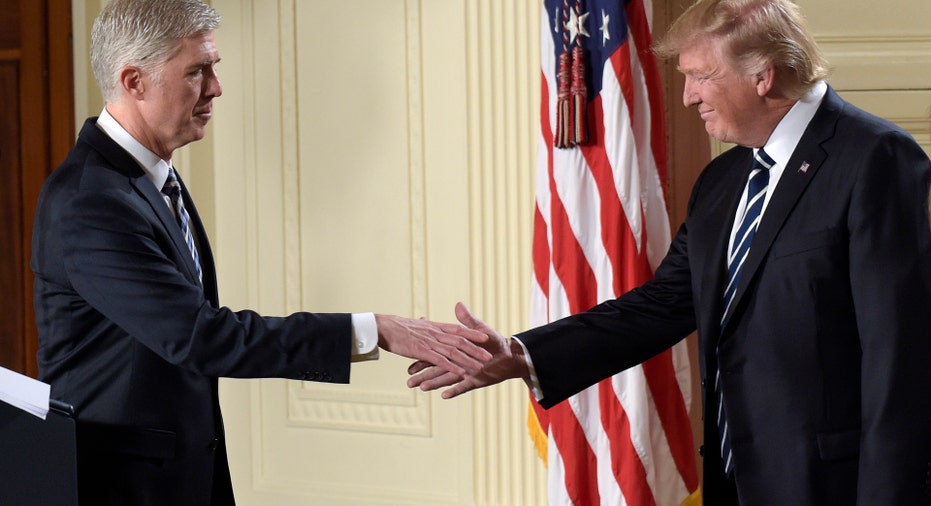Trump's Supreme Court Pick a Champion of Small Government

President Donald Trump announced Tuesday night that Judge Neil Gorsuch is his pick to assume the ninth seat on the U.S. Supreme Court.
With a record demonstrating a strong commitment to traditional Republican values, Gorsuch was appointed to the 10th Circuit Court of Appeals by President George W. Bush. At 49 years old, Gorsuch would be the youngest Supreme Court Justice on the court in 25 years. His mother, Anne Gorsuch Burford, was the first female head of the Environmental Protection Agency, serving under President Ronald Reagan.
While his mother was a well-known critic of the federal government for being too big and restrictive of business, Gorsuch is a strong proponent of limiting the amount of deference granted to federal agencies by courts.
In Gorsuch’s expressed opinion, allowing government agencies to interpret the law means allowing them to change their minds. This, he believes, forces citizens to not only act in accordance with the agency’s current interpretation of the law, but also “remain alert to the possibility that the agency will reverse its current view 180 degrees anytime based merely on the shift of political winds.”
“He favors states’ rights and limited federal government and strict separation of powers,” lawyer Wendy Murphy told FOX Business.
Murphy points out this could be bad news for Trump’s executive order authority because “such an ideology disfavors executive orders.”
This perspective aligns Gorsuch with traditional conservative views of small government, perhaps even more so than Scalia. However, Gorsuch is a lot like Scalia in one important way, Ilya Shapiro, senior fellow in constitutional studies at the Cato Institute, told FOX Business.
“[Gorsuch] has a well thought out conception of Constitutional interpretation and the way that structure protects liberty. He’s most known for his opinions supporting religious liberty and pushing back on the administrative state,” he said.
Gorsuch is a protector of religious liberty. In Hobby Lobby Stores Inc. v. Sebelius, Judge Gorsuch ruled against the Affordable Care Act’s contraceptive mandate, which requires private employers to provide employees with insurance to cover contraceptive costs. Gorsuch sided with the companies, which argued the mandate violated their religious beliefs.
The big unknown is whether Senate Democrats will put up a fight during Gorsuch’s confirmation process, which requires a 60-vote majority. President Obama nominated Chief Judge Merrick Garland to fill the vacancy on the Supreme Court nearly one year ago when Scalia passed. Republicans refused to consider Garland at the time.
Constitutional law expert at Pate & Johnson, Page Pate, said he expects Democrats will make an effort to block Gorsuch, and would’ve tried to block any Trump pick.
Senator Minority Leader Chuck Schumer (D-NY) has promised on multiple occasions to keep Scalia’s seat open indefinitely if Trump’s nominee is “not bipartisan and mainstream.”
For the last three successful Supreme Court appointments, the confirmation process took an average of 78 days from the time of nomination.
As previously reported by FOX Business, Trump’s mark on the Supreme Court could extend well beyond this singular vacancy. Since 1960, the average age of a Justice who has left the bench is 78. Currently there are three sitting members of the court who are at least 78; Ruth Bader Ginsburg (83), Anthony Kennedy (80) and Stephen Breyer (78).



















